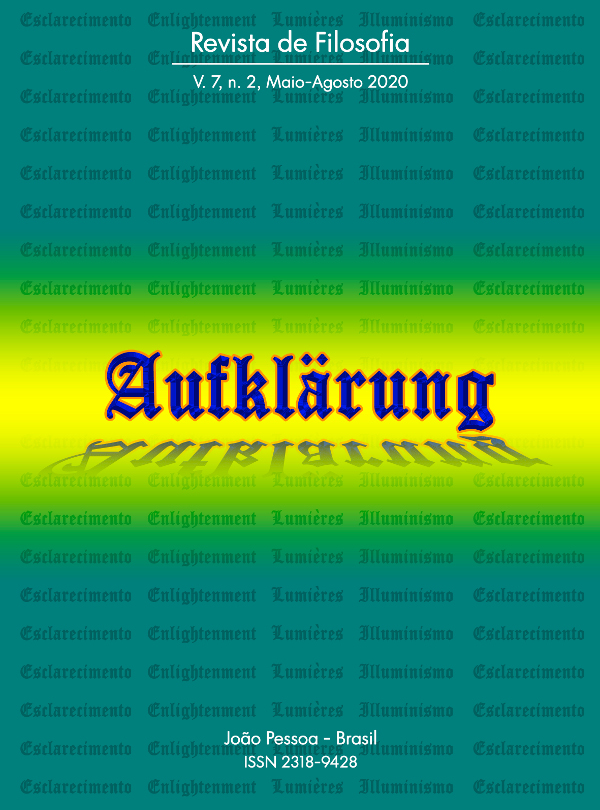A culpa universal como consenso ético entre a filosofia, o cristianismo, budismo e bramanismo, segundo Schopenhauer
DOI:
https://doi.org/10.18012/arf.v7i2.50985Keywords:
Guilt, Christianity, Buddhism, BrahmanismAbstract
Schopenhauer affirms an identity between Christianity, Buddhism and Brahminism in relation to the notion of human and world guilt. According to the philosopher, the three religions affirm a guilt that is carried by the human being due to his own existence. Considering the problem of the sources to which Schopenhauer resorted in his studies on Eastern religions, especially in relation to the Upanishads, it is questioned in this article whether the position of approximation and imputative identity in relation to the human being and the world, affirmed by him, in fact, sustainable based on the arguments presented in the two volumes of the World as will and representation and in Parerga and Paralipomena.
Downloads
References
DECKOK, Diana Chao, O encontro de Schopenhauer com o pensamento indiano: influência e legitimidade, Revista Voluntas: Estudos sobre Schopenhauer-Vol. 7, Nº 2. 2º semestre de 2016. ISSN:2179-3786-pp. 27-37
RAMOS, Flamarion Caldeira, Horkheimer leitor de Schopenhauer: uma tradução e um breve comentário, Cadernos de Filosofia Alemã nº 12 – jul.-dez. 2008 - p. 99-113.
SING KANG, Tarandeep. The Place of India in Enlightenment and Post-Enlightenment Philosophies of History, Cornell University, 2012.
SCHOPENHAUER, Arthur. Sämtliche Werke. Textkritisch bearbeitet und herausgegeben von Wolfgang Frhr. Löhneysen. Darmstadt: Wissenschaftliche Buchgesellschaft, 1968.
SCHOPENHAUER, Arthur. Werke in fünf Bänden. Nach den Ausgaben letzter Hand. Hrsg. von L. Lütkehaus. Zürich: Haffmans Verlag, 1988 (1988-1989).
SCHOPENHAUER, Arthur. O mundo como vontade e como representação (W I). Trad. Jair Barboza. São Paulo: Editora da Unesp, 2013.
SCHOPENHAUER, Arthur. O mundo como vontade e como representação, Tomo II: Suplementos aos quatro livros do primeiro tomo. Tradução, apresentação, notas e índices de Jair Barboza. 1ª ed. São Paulo: Editora Unesp, 2015.
SCHOPENHAUER, Arthur. Sobre a Ética, Tradução de Flamarion C. Ramos, Editora Herda, São Paulo, 2012.
Additional Files
Published
How to Cite
Issue
Section
License
Journal general policy
1.This journal works under a Creative Commons License aplied to online journals. That icence can be read in the following link: Creative Commons Attribution 4.0 International (CC BY 4.0).
2.Accordingly to this License, a)the journal declares that authors hold the copyright of their articles without restrictions, and they can archieve them as post-print elsewhere. b)the journal allow the author(s) to retain publishing rights without restrictions.
Metadata Policy for information describing items in the repository
1. Anyone may access the metadata free of charge at anytime.
2.The metadata may be re-used in any medium without prior permission, even commercial purposes provided the OAI Identifier or a link to the original metadata record are given, under the terms of a CC BY license refered for the Journal.







































